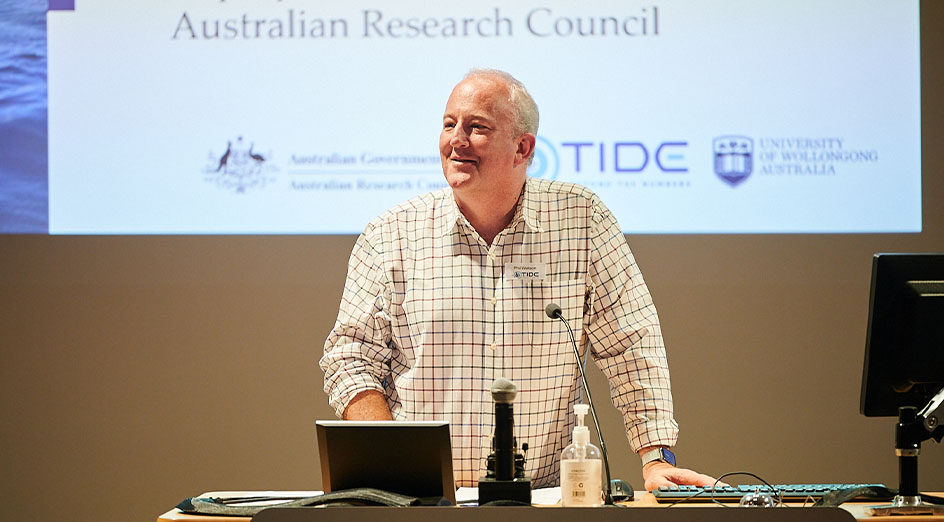A new research hub that will use data and physics-based science to better understand offshore energy environments and improve future infrastructure design and operation has been officially launched at The University of Western Australia.
The Transforming energy Infrastructure through Digital Engineering (TIDE) hub is funded by $5 million under the Australian Research Council Industrial Transformation Research Program, supplemented by $5 million in industry funds as well as significant in-kind contributions and co-investment and in-kind contributions from UWA and the University of Wollongong.
 Image: Professor Phillip Watson from the Oceans Graduate School.
Image: Professor Phillip Watson from the Oceans Graduate School.
Hosted at the UWA Oceans Graduate School, a world-leader in ocean engineering, it will draw experts from core disciplines of oceanography, hydrodynamics, geotechnics and marine structures at UWA, along with mathematics, statistics and data science at UWA and the National Institute for Applied Statistics Research Australia at the University of Wollongong.
TIDE Director Professor Phillip Watson, from UWA’s Oceans Graduate School and Oceans Institute, said the research hub would analyse historical and future data libraries from industry partners to characterise a complex ocean environment in order to predict environmental effects on common structural systems, resulting in improved decision making regarding offshore energy infrastructure.
“It will provide a unique opportunity for researchers from UWA’s Oceans Graduate School and investigators from partner organisations to examine data gathered from offshore energy installations to improve energy industry practice while benefiting other ocean sectors,” Professor Watson said.
He said that offshore energy added more than $55 billion gross value to the economy annually and directly employed 100,000 people, and as the Australian energy industry transitioned to long-term operations, it was critical that the sector leveraged research to lower the cost of future production.
“The hub findings will transform how the industry manages critical energy infrastructure – such as pipelines, structures and vessels – which will result in process improvements that are not only affordable, but safer and more reliable,” he said.
“Improvements to these processes will benefit the national economy by generating stronger tax revenue, attracting ongoing investment and training specialist data-science engineers with transferrable skills who are ready to lead the digital transformation of the energy sector.”
Industry partners include three of Australia’s largest producers of LNG – Woodside, Shell and INPEX – plus Lloyd’s Register Group, Bureau Veritas, Fugro, RPS and Wood. Australian research partners include the Australian Bureau of Meteorology, the Australian Institute of Marine Science and Qeye.
International collaborators include researchers and scientists from the University of Texas, the University of Oxford, the Technology Centre for Offshore and Marine Singapore, the University of Southampton, HR Wallingford, Lancaster University, Virginia Tech, SolidGround and the Alan Turing Institute.
